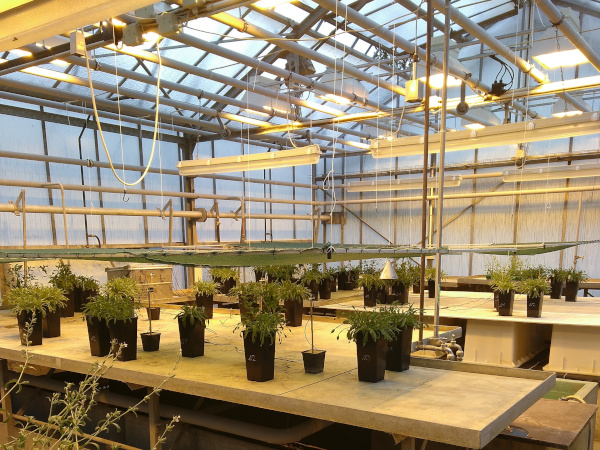Teaching

Ecology of Plants
Module coordinator: Prof. Dr. Steven Higgins
In this lecture you will acquire fundamental understanding of the forcing factors that influence the spatial distribution and temporal dynamics of terrestrial plants.
Practical course in Plant Ecology
Module coordinator: Chair of Plant Ecology
Using a field experiment, in this practical you will learn how growth and morphological traits of plants vary along environmental gradients and how this is linked to the functioning of ecosystems.

Module Conservation Biology of Plants
Module coordinator: Dr. Timo Conradi
In this module, which consists of lectures and practical exercises, you will learn to assess threats to plant biodiversity in a world characterised by rapid change and to actively counteract these through modern nature conservation measures.

Module Field Methods in Plant Ecology
Module coordinator: Prof. Dr. Steven Higgins
In this module you get the opportunity to experience how science guides the management of one of Earth’s largest protected areas and to learn some of the most important filed methods in plant ecology.

Master Module Dynamic Vegetation Ecology
Module coordinator: Prof. Dr. Steven Higgins
In this module you will deepen your understanding of plant ecology. The lecture explores our knowledge and knowledge gaps regarding the role of plants in the Earth system. The seminar starts with a discussion of influential works in the field of plant ecology and then establishes links between these foundational works and recent research foci. In the practical you will use field-based (leaf gas exchange, soil respiration, leaf area index) and remote sensing-based methods for the estimation of net primary production – one of the most important parameters of fluxes in our ecosystems. We then analyze the data collected with these approaches in the R programming language.

Master Module Experimental Plant Ecology
Module coordinator: Dr. Fatih Fazlioglu
Experiments are a crucial tool in ecological research to answer scientific questions about nature. To do so, the scientific method is used, which includes identifying knowledge gaps, generating research questions or hypotheses, experimenting, collecting appropriate data, and analyzing, interpreting, and presenting the data.
This course provides a theoretical background in the scientific method and experimental design in plant ecology. It also offers students with hands-on experience by designing and conducting an experiment. Students learn to collect experimental data and analyze their data with R software. Students also gain scientific experience and skills in communicating their experimental findings. This course will be offered annually in summer semesters.
Master Module Ecology and Evolution of Trait Plasticity
Module coordinator: Dr. Fatih Fazlioglu
Phenotypic traits are observable and measurable characteristics of organisms. The expression of traits in response to environmental changes can variate, and these variations play significant roles in the eco-evolutionary dynamics of species, interactions between species, and ecosystem processes. The ability of a genotype to produce different phenotypes under different environmental conditions, phenotypic plasticity, may promote natural selection or shield against it through various mechanisms.
This course provides fundamental knowledge on the ecology and evolution of phenotypic plasticity, genotype-by-environment interactions, trait variations, and analyses of trait variations. Students will develop critical thinking regarding adaptive/non-adaptive roles of phenotypic plasticity in adaptation, explore the role of plasticity in diversification, and analyze plant trait data using a hands-on approach. This course will be offered annually in winter semesters.

Master Module Vegetation Ecology of Central Europe
Module coordinator: Dr. Timo Conradi
The module conveys a fundamental ecological understanding of Central Europe’s Vegetation. The lecture covers the environmental, biogeographic and land-use history of Central Europe, important vegetation types and their abiotic and biotic conditions, as well as the functional traits that enable plants to grow under these conditions. The practical will showcase various vegetation types in different geo-regions of Bavaria, including their species composition and functioning. We then use numerical methods to analyse the plant community data collected during the field trips.
Additionally, you can enrol in the modules Conservation Biology of Plants and Field Methods for Plant Ecology in the Master's degree programme if you have not already taken these modules in the Bachelor's degree programme.
Courses
| Number | Sem. Hours | Type | Name | Lecturer |
|---|

